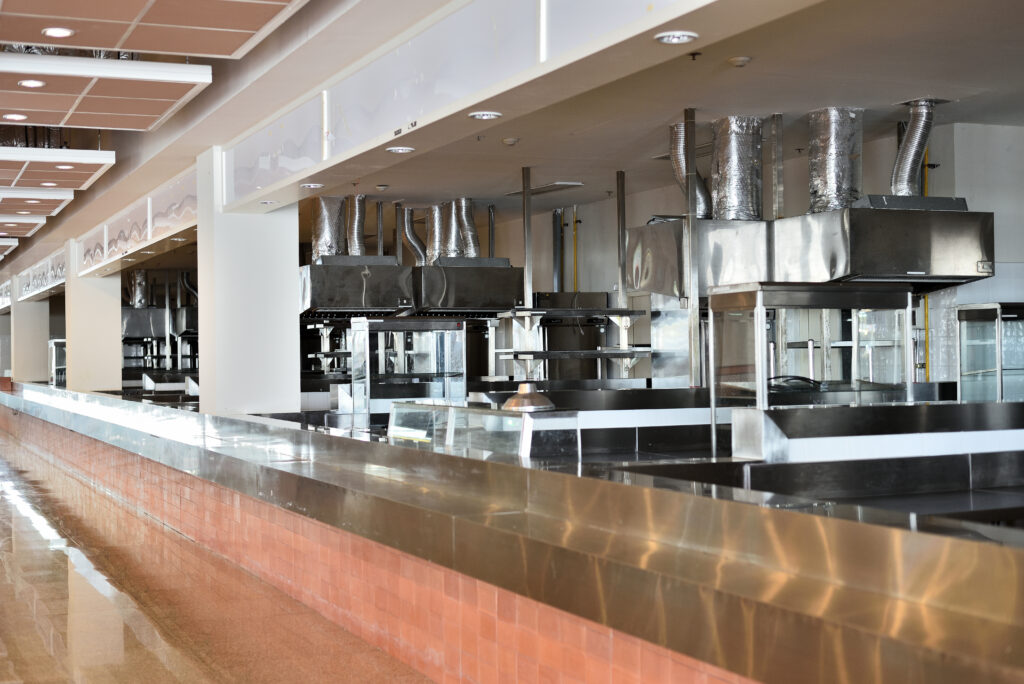Table of Contents
- The Pros of Systematic Ventilation Cleaning
- 1. Improved Indoor Air Quality
- 2. Energy Efficiency
- 3. Extended Equipment Lifespan
- 4. Compliance with Regulations and Standards
- 5. Fire Prevention
- Frequently Asked Questions
- 1. How often should ventilation systems be cleaned?
- 2. Can I clean my ventilation system myself?
- 3. How much does ventilation cleaning cost?
- 4. Can ventilation cleaning help reduce allergies?
- 5. Is ventilation cleaning necessary if I have a new system?
- Summary
The Pros of Systematic Ventilation Cleaning

Ventilation systems play a crucial role in maintaining indoor air quality and ensuring the comfort and safety of occupants in various settings, including residential, commercial, and industrial spaces. Over time, these systems can accumulate dust, dirt, and other contaminants, which can compromise their efficiency and pose health risks. Systematic ventilation cleaning is a proactive approach to maintaining and optimizing these systems, offering numerous benefits. In this article, we will explore the pros of systematic ventilation cleaning, supported by research, case studies, and statistics.
1. Improved Indoor Air Quality
One of the primary benefits of systematic ventilation cleaning is the significant improvement in indoor air quality. Over time, ventilation systems can accumulate dust, pollen, mold spores, and other allergens, which can circulate throughout the building and negatively impact the health of occupants. Regular cleaning of ventilation systems removes these contaminants, reducing the risk of respiratory issues, allergies, and other health problems.
According to a study conducted by the Environmental Protection Agency (EPA), indoor air pollution can be two to five times higher than outdoor air pollution. The study also found that poor indoor air quality can lead to various health issues, including headaches, fatigue, and respiratory problems. By implementing systematic ventilation cleaning, building owners and managers can significantly improve the air quality within their premises, creating a healthier and more comfortable environment for occupants.
2. Energy Efficiency
Another significant advantage of systematic ventilation cleaning is improved energy efficiency. When ventilation systems become clogged with dust and debris, they have to work harder to maintain the desired airflow. This increased workload leads to higher energy consumption and, consequently, higher utility bills.
A study conducted by the National Air Duct Cleaners Association (NADCA) found that cleaning the heating, ventilation, and air conditioning (HVAC) system can result in energy savings of up to 40%. By removing the buildup of contaminants, ventilation systems can operate more efficiently, reducing the strain on the system and lowering energy consumption.
3. Extended Equipment Lifespan
Regular cleaning and maintenance of ventilation systems can significantly extend their lifespan. When dust and debris accumulate within the system, it can cause mechanical issues, such as motor burnout or fan failure. These issues can lead to costly repairs or even the need for a complete system replacement.
By implementing systematic ventilation cleaning, building owners and managers can prevent the buildup of contaminants that can cause mechanical issues. This proactive approach helps to ensure that the ventilation system operates smoothly and efficiently, reducing the risk of premature equipment failure and extending its lifespan.
4. Compliance with Regulations and Standards
In many industries, compliance with regulations and standards regarding indoor air quality is mandatory. Failure to meet these requirements can result in fines, legal issues, and damage to a company’s reputation. Systematic ventilation cleaning plays a crucial role in meeting these regulations and standards.
For example, in the food service industry, regular cleaning of kitchen exhaust systems is required to prevent the buildup of grease, which can pose a fire hazard. Failure to comply with these regulations can result in severe consequences, including the closure of the establishment.
By implementing systematic ventilation cleaning, businesses can ensure compliance with industry-specific regulations and standards, mitigating the risk of penalties and maintaining a safe working environment.
5. Fire Prevention
Systematic ventilation cleaning is particularly important in environments where fire hazards are present, such as commercial kitchens. Grease buildup in kitchen exhaust systems can ignite and lead to devastating fires. Regular cleaning of these systems removes the grease and reduces the risk of fire.
A case study conducted by the National Fire Protection Association (NFPA) found that failure to clean kitchen exhaust systems was the leading cause of fires in eating and drinking establishments. The study also revealed that these fires resulted in an average of $23,000 in property damage.
By implementing systematic ventilation cleaning, businesses can significantly reduce the risk of fires, protecting their property, employees, and customers.
For reliable and professional hood cleaning services in Ontario, visit Ontario Hood Cleaning.
Frequently Asked Questions

1. How often should ventilation systems be cleaned?
The frequency of ventilation system cleaning depends on various factors, including the type of system, the environment, and the level of usage. In general, it is recommended to have ventilation systems professionally cleaned at least once every 1-3 years. However, certain environments, such as commercial kitchens or healthcare facilities, may require more frequent cleaning.
2. Can I clean my ventilation system myself?
While it is possible to perform basic maintenance tasks, such as changing filters, cleaning ventilation systems properly requires specialized equipment and expertise. Professional ventilation cleaning companies have the necessary tools and knowledge to thoroughly clean and sanitize the system, ensuring optimal performance and indoor air quality.
3. How much does ventilation cleaning cost?
The cost of ventilation cleaning can vary depending on factors such as the size of the system, the level of contamination, and the location. On average, the cost can range from $300 to $1000 for residential systems and can be higher for commercial or industrial systems. It is recommended to obtain quotes from reputable ventilation cleaning companies to get an accurate estimate.
4. Can ventilation cleaning help reduce allergies?
Yes, systematic ventilation cleaning can help reduce allergies by removing allergens such as dust, pollen, and pet dander from the system. By improving indoor air quality, ventilation cleaning can alleviate symptoms for allergy sufferers and create a healthier environment for everyone.
5. Is ventilation cleaning necessary if I have a new system?
Even new ventilation systems can accumulate dust and debris during installation or construction. Additionally, manufacturing residues and contaminants may be present in new systems. Therefore, it is recommended to have new systems professionally cleaned before use to ensure optimal performance and prevent potential issues.
Summary
Systematic ventilation cleaning offers numerous benefits, including improved indoor air quality, energy efficiency, extended equipment lifespan, compliance with regulations, and fire prevention. By implementing regular cleaning and maintenance of ventilation systems, building owners and managers can create a healthier and safer environment for occupants, reduce energy consumption, and avoid costly repairs or penalties. Professional ventilation cleaning companies play a crucial role in ensuring thorough and effective cleaning, utilizing specialized equipment and expertise. Investing in systematic ventilation cleaning is a proactive approach that pays off in terms of improved air quality, energy savings, and overall system performance.
- hood cleaning
- kitchen exhaust cleaning
- restaurant hood cleaning
- The Pros of Systematic Ventilation Cleaning






